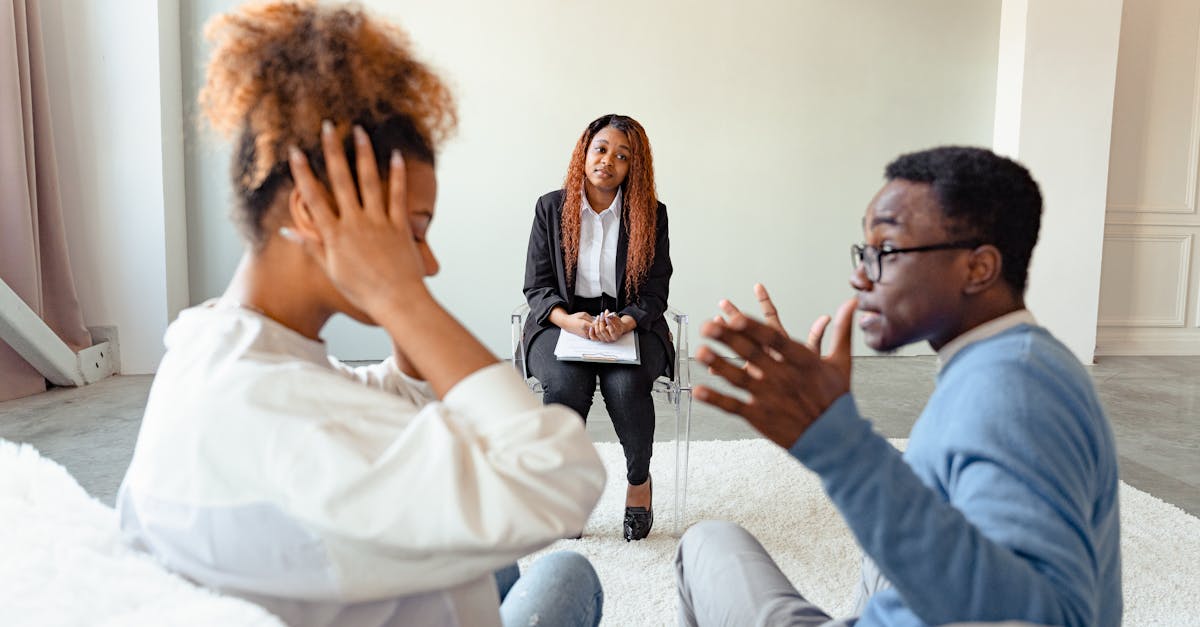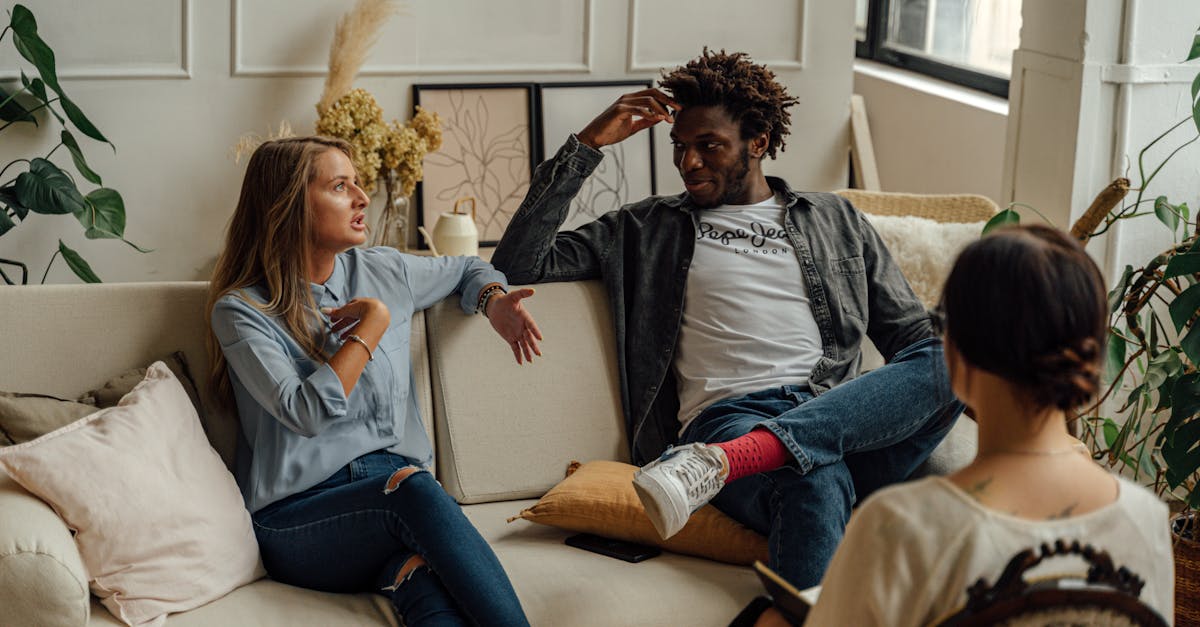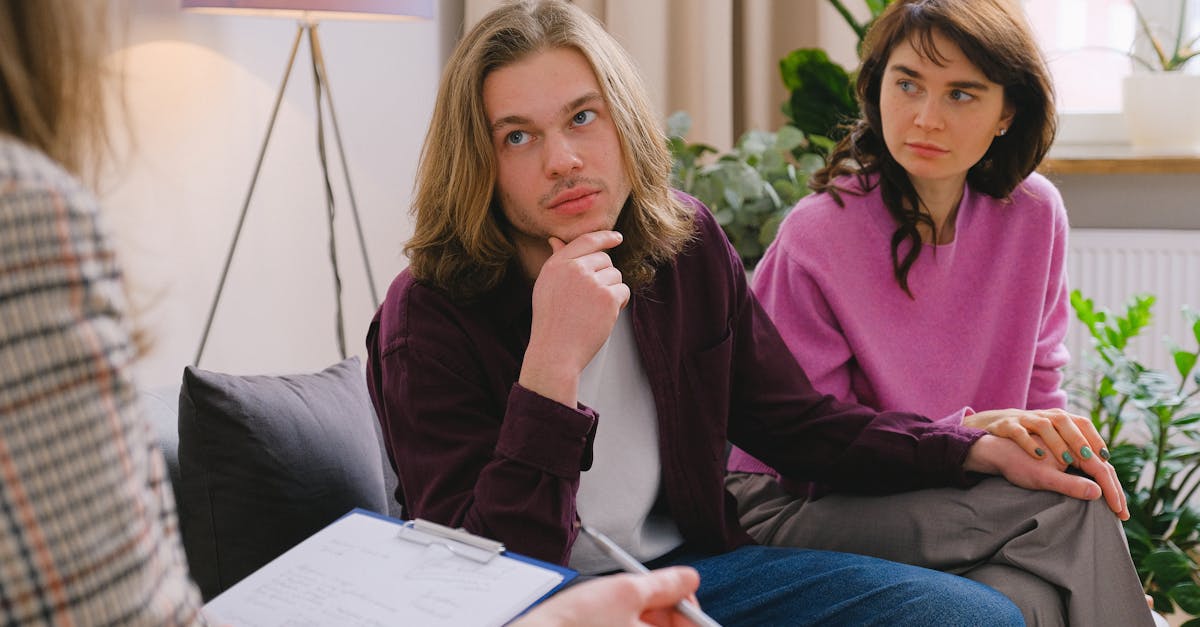
Success Stories from Couples Counselling
Many couples who enter counseling initially feel overwhelmed by their issues. They often report experiencing communication breakdowns and emotional distance. Through the process of couples counseling, these partners learn to express their feelings effectively and understand each other's perspectives. Many have found that by working together with a trained therapist, they can reconnect and rebuild their relationship. This journey often leads to renewed commitment and deeper intimacy.
Success stories abound, highlighting the transformative power of couples counseling. For instance, couples who once struggled with trust and infidelity have emerged with strengthened bonds. They describe how guided discussions facilitated by skilled therapists allowed them to address underlying issues. This process not only fosters healing but also equips partners with tools to navigate future conflicts. Each success story serves as a testament to the positive impact that couples counseling can have on relationships.
RealLife Examples of Transformation
Many couples have experienced profound changes through Couples Counseling. Take the example of Mark and Lisa, who struggled with communication issues that seemed insurmountable. After several sessions with a skilled therapist, they learned to articulate their feelings and truly listen to one another. The tools they gained helped them rebuild trust. Their relationship, once fraught with tension, transformed into a partnership marked by understanding and support.
Another inspiring story involves James and Sophie, who faced challenges related to parenting. Their differing approaches led to constant arguments and frustration. Couples Counseling provided a safe space for them to explore these differences. Through guided discussions, they learned to navigate their parenting styles collaboratively. This newfound alignment not only improved their relationship but also created a more harmonious environment for their children.
Challenges in Couples Counselling
Couples counseling can encounter various challenges that hinder effective communication and conflict resolution. One of the most significant barriers is the unwillingness of one or both partners to fully engage in the process. This reluctance may stem from fear of vulnerability or prior negative experiences with therapy. When couples do not commit to open dialogue, it becomes difficult for the therapist to facilitate meaningful progress.
Another common challenge lies in differing expectations regarding the counseling process. Each partner may have unique goals, resulting in misalignment that can frustrate efforts toward resolution. Without a shared understanding of what they hope to achieve, couples may find themselves revisiting the same issues repeatedly. This lack of clarity can undermine the trust necessary for successful couples counseling.
Potential Barriers to Achieving Results
Couples counseling can be a powerful tool for relationship improvement, yet several barriers may hinder its effectiveness. One common issue is the varying levels of commitment from each partner. If one person is invested in the process while the other is hesitant or resistant, shared progress may become stunted. This discrepancy can lead to frustration and a feeling that counseling is not yielding meaningful change.
Another barrier lies in the communication dynamics established prior to counseling. Couples may have developed entrenched patterns of conflict or avoidance, making it difficult to engage openly during sessions. Even the best techniques provided by a therapist may falter if partners struggle to express themselves honestly. Establishing trust and safety in the counseling environment is crucial for overcoming these obstacles.
The Role of the Therapist
The therapist plays a crucial role in the effectiveness of couples counseling. Professionals in this field must establish a safe and non-judgmental environment. This allows both partners to express their thoughts and feelings openly. The therapist's ability to facilitate constructive dialogue fosters understanding and empathy between the couple. They guide conversations, ensuring that both sides are heard and respected, which is essential for meaningful progress.
Qualifications and skills are vital attributes for effective therapists in couples counseling. A strong foundation in psychology helps them understand relationship dynamics and individual behaviors. Additionally, training in conflict resolution techniques proves beneficial for navigating disputes. Active listening and empathic communication skills enhance their ability to connect with clients. Such qualifications enable therapists to tailor their approach to meet the unique needs of each couple, ultimately improving the chances of successful outcomes.
Qualifications and Skills of Effective Counsellors
Effective couples counseling relies heavily on the qualifications and skills of the therapist. A licensed counselor typically possesses advanced degrees in psychology, social work, or a related field. Certification from recognized organizations ensures that the therapist has met the necessary standards to provide effective support. Continuous education and training in couple dynamics and communication strategies are essential for staying updated on the latest research and methods.
Moreover, effective counselors exhibit strong interpersonal skills, which facilitate open communication between partners. Active listening and empathy are crucial in creating a safe space for clients to express their feelings. A skilled therapist also tailors their approach to meet the unique needs of each couple. This individualized method can enhance engagement during counseling sessions, ultimately leading to more successful outcomes in couples counseling.
FAQS
What is the average success rate of couples counseling?
The average success rate of couples counseling varies, but studies suggest that around 70-75% of couples experience improvements in their relationship after attending therapy sessions.
How long does couples counseling typically take to show results?
Couples counseling can show results within a few sessions, but it often takes several weeks or months for lasting changes to occur, depending on the issues being addressed and the commitment of both partners.
What factors influence the success of couples counseling?
Factors influencing success include the willingness of both partners to engage in the process, the quality of the therapeutic relationship, the therapist's skills, and the specific challenges the couple is facing.
Can couples counseling work for all types of relationships?
While couples counseling can benefit many types of relationships, its effectiveness may vary depending on the unique dynamics of the couple and their willingness to work on their issues. Some couples may find it more beneficial than others.
What should couples do if they don't see improvement from counseling?
If couples do not see improvement after several sessions, they should communicate openly with their therapist about their concerns. It may be necessary to reassess their goals, explore different techniques, or consider switching therapists for a better fit.

